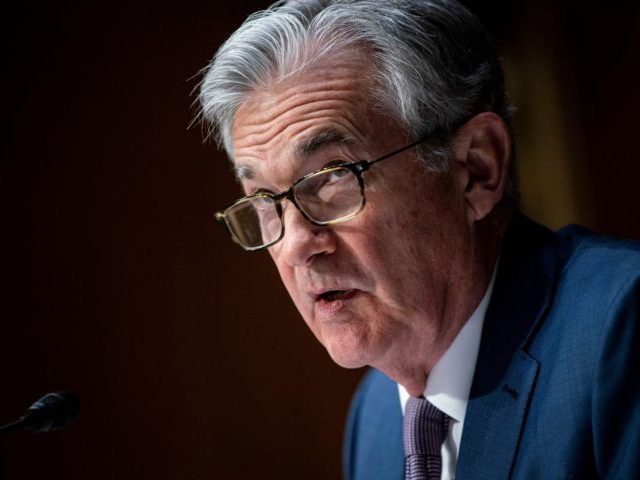Federal Reserve Chairman Jerome Powell told lawmakers Tuesday that the economy is recovering more quickly than expected but he doesn’t expect the $1.9 trillion stimulus package will lead to too much inflation.
“We might see some upward pressures on prices. Our best view is that the effect on inflation will be neither particularly large nor persistent,” Powell said.
The Fed chair said he does expect prices will move up this spring as vaccinations become more common and the economy moves up. Year over year inflation measures will show prices higher than in the depths of the initial lockdowns of 2020—a phenomenon Powell referred to as a “base effect.” In addition, there could be a “surge in spending” but that would fade over time.
Powell said one of the reasons he expects inflation to stay low is that “we have been living in a world of strong deflationary pressures for decades.” Those pressures will continue to hold back prices, Powell indicated.
Even if inflation does climb higher than expected or becomes more persistent than forecast, Powell said the Fed has adequate tools to rein in prices.
Powell repeated his new mantra that the Fed aims for two percent inflation on average, which means the Fed is now aiming to bring inflation higher than that to balance years of inflation running below the target. Powell shifted the Fed’s policy last year to targeting the average over time.
Powell was testifying to the House Financial Services Committee along with Treasury Secretary Janet Yellen. The hearing was required by last year’s CARES Act to address oversight of the emergency lending programs that law authorized. Many of those programs have wrapped up or will be concluded shortly so much of the hearing was focused on other matters.
“The recovery has progressed more quickly than we generally expected and looks to be strengthening,” Powell said. “But the recovery is far from complete, so, at the Fed, we will continue to provide the economy with the support that it needs for as long as it takes.”
Powell pointed out that certain parts of the economy have recovered much faster than others. Retail spending has been strong and the housing sector has “more than fully recovered,” Powell said. Manufacturing has also recovered much of its strength. But spending in the services sector, particularly in areas where services are typically provided in-person, remains far below its pre-pandemic level.
Powell repeated his mantra that the path of the economy will be highly dependent on the course of the virus. But he added a moe upbeat note, saying that “ongoing vaccinations offer hope for a return to more normal conditions later this year.”
Secretary Yellen was somewhat more downbeat in her remarks, emphasizing hunger and job loss.
“We are meeting at a hopeful moment for the economy—but still a daunting one,” she said. “While we’re seeing signs of recovery, we should be clear-eyed about the hole we’re diffing out of: the country is still down nearly 10 million jobs from its pre-pandemic peak.”

COMMENTS
Please let us know if you're having issues with commenting.